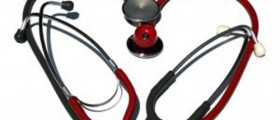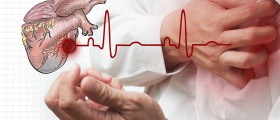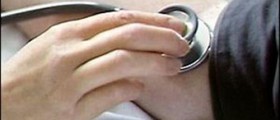
Syncope
Syncope is temporary loss of consciousness and it belongs to a group of medical conditions which feature with transitory loss of consciousness. The problem in syncope occurs due to insufficient global cerebral perfusion of nutrients. The brain is not properly supplied with oxygen and the patient may develop dizziness, tinnitus, problems with vision and weakness of extremities. All of the previously mentioned finally lead to physical collapse. This medical condition can be caused by heart conditions or other medical conditions. The most frequent type of syncope is so-called neurocardiogenic syncope in which unexpected collapse of the autonomic nervous system causes rapid decrease in blood pressure and the brain is deprived of oxygen supply.
The actual mechanism of how syncope develops has not been established yet. Still, it can be explained by predisposition of certain people to suffer from accumulation of the blood in peripheral veins. This way there is insufficiency of the blood in the arteries and this leads to hypercontractility. Strong contractions motivate mechanoreceptors which are localized in the left ventricle. The consequence is cardioinhibition, vasodilatation or a combination of these two. Even other body organs such as rectum, bladder or even lungs contain mechanoreceptors and this is why other body functions including defecation, urination or cough can be triggers for syncope.
Causes of Syncope
Cardio-neurogenic syncope also known as vasovagal syncope is the most frequent type of this medical condition. It results as a consequence of rapid and unexpected reduction in blood pressure. Since the brain is not properly supplied with blood and oxygen human body activates the heart and autonomic nervous system to bring the blood pressure under control. This type of syncope is characteristic in people who are suffering from orthostatic hypotension.
Situational syncope develops due to specific stimulation of certain nerves. Namely, numerous events in human body can trigger this type of syncope ranging from dehydration and hunger to emotional stress anxiety, fear or pain. Even certain medication or alcohol consumption can be potential triggers of situational syncope. It is known that hyperventilation, which is common for panic attacks, can consequently result in syncope. This is another example of situational syncope.
Postural syncope develops after a person changes position hastily.
Cardiac syncope is most commonly induced by irregular heart beat. Additionally, it can affect people suffering from other heart conditions including aortic stenosis, valve disease or heart failure.
In neurologic syncope the loss of consciousness can be caused by epileptic attacks, stroke or transient ischemic attack.
And finally, in some patients the actual cause of syncope cannot be determined.

















Your thoughts on this
Loading...